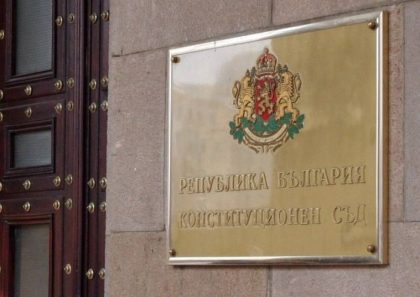Секретната информация като разменна монета за политическа корупция
Българските практики за събиране, проверяване и споделяне на информация са анализирани от посланик Джон Байърли през 2007 в секретен доклад до Държавния департаментс най-висока степен на класификация [07SOFIA1284]. Докладът е изготвен по запитване от Вашингтон, формулирано в грама, която не е налична в Wikileaks [07SECSTATE133921]. Освен отговорът от София, в публикуваните от Wikileaks доклади се откриват отговорите на още 23 посолства на САЩ.
Обменът на данни между българските институции е мотивиран от политическа корупция. Българските агенции по-охотно обменят информация с чуждестранни ведомства, отколкото помежду си, но за сметка на това пазят ревниво интересите на богатите и властимащи българи. Корумпирани български полицаи използват партньорска информация, за да прикриват укриващи се от правосъдието. Освен това е нещо нормално от службите да тече класифицирана информация – това са шокиращите изводи от доклада.
България не поддържа свой национален списък на терористи е първото заключение в грамата. В друг, по-ранен доклад [06SOFIA1656] това също е подчертано и е уточнено, че българските служби ползват европейски източници и такива от ООН, за да идентифицират терористи и терористически организации.
В доклада са изброени по-важните бази данни, с които оперират българските служби. НСС (сега ДАНС) разполага със списък на лица под наблюдение, в който се проверяват влизащите в страната. Контактите на посолството обаче отказали да кажат колко имена съдържа тази база данни, а американците не са сигурни, че разузнавачите ни знаят колко са фигурите на организираната престъпност вписани в нея.
Имиграционните служби и гранична полиция имат достъп до две компютъризирани бази данни: Автоматичната информационна система за издирвани лица и Автоматичната информационна система за граничен контрол, научаваме от грамата. Последната система очевидно е била описана и в друг доклад от 2006 г. който обаче също не се открива в Wikileaks.
Вътрешното министерство поддръжа компютърна база данни с информация за издирвани лица, откраднати коли, невалидни документи, оръжия, валута и други вещи, които имат уникален идентификационен номер. В тази база могат да търсят информация граничните полицаи и полицейските управления, които също така могат да я допълват.
НСС има агенти за свръзка във всички полицейски агенции, така че е твърде възможно информацията да се използва и за разузнавателни нужди, и за нуждите на правоохраняването. Посланикът обаче уточнява, че не е могъл да потвърди тези практики.
Българските правителствени агенции обаче нямат обща консолидирана база данни и поддръжат отделни информационни масиви. Тази информация не е новост и е илюстрирана от мъчителната сага на Единната информационна система за противодействие на престъпността (ЕИСПП), която след 16 години изграждане и похарчени 20 милиона лева отново е записана като „неотложна мярка“ в поредния правителствен екшън план за справяне с критиките на Европейската комисия.
България има подписани споразумения за обмен на информация за имената на пасажерите (системата PNR). Усъвършенстваната Система за Информация за Пасажерите (APIS) и Интерактивната Усъвършенствана Система за Информация за Пасажерите (IAPIS) са били ефективни за откриване на заплахи за националната сигурност. Възможно е обаче корумпирани полицейски служители да ги използват, за да помагат на укриващи се от правосъдието, предупреждава посланикът.
Най-интересен е параграфът, в който Байърли дава оценка на партньорските процедури за обмен на информация.
Когато американците се обръщат към българското правителство и подчинените му агенции като към партньори, те трябва да се съобразяват с политическите реалности и като по-приложим се налага подходът „разходи/ползи“. Това е така, защото корупцията, в смисъл на партийни взаимовръзки, остава голям проблем и отразява политическите, културните и понякога личните чувствителности, когато се търси информация за български граждани. Байърли смята, че това се дължи частично на конституционални ограничения, частично на спомена за злоупотреби през комунистическата епоха и частично на културата на фаворитизъм и защитаване на богатите и разполагащите с власт.
В случаите, когато американците търсят информация за български граждани, замесени в нещо или защитаващи свои интереси, вероятността информацията, методите и средствата да бъдат компрометирани е изключително висока – предупреждава Байърли. Ако обаче американците искат информация без връзка с българските интереси, тогава може да се разчита на изключително сътрудничеството и сигурен обмен на информация.
Подобна оценка е дадена от Байърли и в грама от 2005 г., посветена на тогавашния главен секретар на МВР Бойко Борисов. Според посланика той е бил изключително отворен за сътрудничество с американците, но само за случаи, които не засягат фигури на българската организирана престъпност.
Защитата и неразпространението на информацията са заложени в писаното законодателство, което обаче рядко се спазва. Нещо повече, нормално е българските медии да получават класифицирани документи относно националната сигурност, които впоследствие се публикуват – отбелязва посланикът.
S E C R E T SOFIA 001284
SIPDIS
NOFORN
SIPDIS
S/CT KEN MCKUNE; CIA FOR NCTC
E.O. 12958: DECL: 10/31/2032
TAGS: PTER KVPR PREL PGOV PINR CVIS ASEC KHLS BU
SUBJECT: BULGARIA: INFORMATION ON HOST GOVERNMENT
PRACTICES - INFORMATION COLLECTION, SCREENING, AND SHARING
REF: A. A) SECSTATE 133921
¶B. B) 06 SOFIA 01656
¶C. C) 06 SOFIA 01703
Classified By: DCM Alex Karagiannis for reasons 1.4 (b) and (d).
¶1. (U) This cable provides information on Bulgarian
Government practices on information collection, screening,
and sharing. Responses correspond to questions listed in REF
¶A.
WATCHLISTING
¶2. (SBU) According to our contacts at the Financial
Intelligence Agency and other Bulgarian government entities,
Bulgaria does not maintain its own "national" list of
terrorists (SEE REF B).
¶3. (C//NF) Travelers entering Bulgaria are subjected to a
watchlist check. The database is maintained by the Bulgarian
National Security Service (NSS), the country's intelligence
service, which is part of the Ministry of the Interior (MOI).
(NOTE: There is draft legislation proposed moving the NSS
to a new National Agency for Security (NAS); NSS functions
and responsibilities on counterterrorism issues would not
change, but could be expanded.) Additionally, law enforcement
information is entered by the Bulgaria's General Police
Directorate for Combating Organized Crime. Our contacts
declined to disclose the specific number of records
maintained in the database, and we are not certain they
themselves have an accurate fix number when it comes to
quantifiable organized crime figures. Bulgarian officials at
all ports of entry have access to two computerized
immigration databases, the Automated Information System (AIS)
for "Wanted Persons" and the AIS for "Border Control" (SEE
REF C).
¶3. (SBU) The MOI maintains a computerized watchlist
database that includes information about wanted persons,
stolen vehicles, invalid identification documents and blank
IDs, weapons, currency and other items that have unique
identification. This database is connected to the AIS for
"Border Control," and all POEs have access to it. Persons in
the database are identified by name as well as other data.
The domestic sources of information for the MOI,s watchlist
and other databases are the National Police (including all
Police Directorates), the National Security Service, the
investigation agencies, the Prosecutor's Office and the
Courts. Every police directorate or service has access to
the databases and the authority to input the information into
the database. All POEs have access to and use INTERPOL,s
watchlist. Once Bulgaria accedes to the Schengen Agreement,
expected in spring 2008, Bulgaria's immigration database AIS
"Border Control" will be linked to the Schengen database and
to the EU visa database. Bulgaria has a bilateral watchlist
agreement with Romania for sharing border control information
and a contact bureau located at the Gyrgevo POE (on the
Romanian border). The bureau includes a shared information
database, which can be accessed by all relevant Bulgarian
agencies. Bulgaria also shares information with all
neighboring countries through a variety of Joint Border
Committees.
TRAVELER INFORMATION COLLECTION
¶4. (SBU) Bulgarian Border Police follow procedures outlined
by EU directives with respect to screening and control of
foreign travelers. Officials do not collect or maintain
travel information outside these guidelines unless is it
warranted by lookout guidance or directed by supervisors.
There are no different policies for air, sea, and land entry
and for domestic flights. There is no collection on domestic
travel. The Bulgarian Border Police collects traveler
information.
¶5. (S/NF) Formally, Bulgarian authorities require prior
coordination at the Secretary General of the Ministry of
Interior level as a starting point for case and information
exchange. Once this is established, further
coordination/information exchange occurs at operational
levels. Informally, established contacts exchange
information regularly, which expedites operational activities.
¶6. (S/NF) Bulgaria's National Security Service has liaison
agents embedded in all police agencies, thus it is highly
likely that the information is used for intelligence and law
enforcement purposes. We have been unable to confirm if
Bulgaria has any existing treaties to share Passenger Name
Record (PNR) data. Advance Passenger Information Systems
(APIS), Interactive Advanced Passenger Information System
(IAPIS), and electronic travel authority systems have been
effective at detecting other national security threats, but
such systems may be assets to corrupt police officials.
Their application to aid and assist fugitives should be noted.
BORDER CONTROL AND SCREENING
¶7. (SBU) The Government of Bulgaria employs software to
screen travelers of security interest.
¶8. (C/NF) Bulgaria employs machine readable passport
technology at air and land crossing points. Due to its
recent accession to the European Union on January 1, 2007,
EU citizens are permitted entry based on their national ID
cards or passports. Directives have been given to the Border
Police not to screen (pre-boarding passenger security check)
EU citizens unless a specific notice is published.
Non-Bulgarian citizens are screened by the verbal orders of
the Chief Director of the Border Police.
¶9. (SBU) Bulgaria's border police have access to
INTERPOL/EUROPOL systems for Red and Yellow notices, and have
policies regarding detaining undocumented refugees.
BIOMETRIC COLLECTION
¶10. (SBU) Biometric systems are in place at all POEs where
an AFIS (Automated Fingerprint Information System) station is
installed. The AFIS Stations are independent systems that do
not share information with the AIS "Border Control." The GOB
is working on a new border control information system that
will be available at all POEs and will be able to identify
people by fingerprints. Fingerprint readers and combined
optical and RFID (Radio Frequency Identification) readers
will be installed in all POEs. The GOB currently uses a
fingerprint identification system that is ICAO compliant.
Bulgaria presently issues passports with advanced security
features and a digitized photo, but with no other biometric
information.
PASSPORTS
¶11. (SBU) The GOB expects to start issuing biometric
passports in the third quarter of 2008. Replacement
passports are issued only for full validity. There are no
special regulations/procedures for dealing with "habitual"
losers of passports. Replacement passports are of the same
appearance and page length as regular passports. Post has
not seen any increase in the number of replacement or "clean"
passports used to apply for U.S. Visas, but has seen that
pattern in the past. Since Bulgaria joined the EU on January
1, 2007, the EU Border Police no longer stamp the passports
of the passengers who are coming to or going from other EU
member states. The Border Police stamps the passports of US
passengers coming from the U.S. and the passports of
passengers from any other non-EU country. Replacement
passports cannot be identified, they look exactly the same as
regular passports, and they have the same number series.
FRAUD DETECTION
¶12. (C/NF) Fraud detection efforts by the Bulgarian
authorities are not sufficiently aggressive. Although
Bulgarian passports and national identity cards have modern
security features and are extremely difficult to counterfeit,
avenues exist to present fraudulent documents to corrupt
public officials and receive valid Bulgarian residency and
travel documents.
PRIVACY AND DATA SECURITY
¶13. (SBU) The Criminal Procedure Code regulates the
procedure for questioning, detention, etc., and maintaining
of records anywhere in the country. The records are stored
in the case file for the duration of the proceedings, and
upon case completion the information is archived. Usually,
the archiving period is 20 years (Law on the National
Archives). If the records contain classified information,
that period could vary from two to 30 years, depending on the
security level (Law on the Protection of Classified
Information). According to the Law on Personal Data
Protection, Art. 4, personal data can be processed when
required by a statute; the individual has given permission;
it is required by a contract; the individual's life/health
should be defended; or it is in the public interest. The law
explicitly prohibits the processing of personal data which
would reveal the person's race or ethnicity; political,
religious or philosophical values or membership in political
parties or other organizations or associations; health
conditions, sexual life or the human genome.
¶14. (SBU) Databases may be created for different reasons on
the basis of laws, and depending on each specific law, there
would be a prescribed action allowing or restricting a public
notice of the new database. Each personal data administrator
is obliged to introduce at least the standards provided in
Regulation No. 1 of February 7, 2007 on the minimum level of
technical and organizational measures for an allowed type of
data protection. The Regulation establishes three protection
levels, depending on the risk assessment: basic, middle, and
high. Articles 9-31 provide detailed description of the
required protection standards.
¶15. (SBU) According to Art. 161 (4) et seq. of the Law on
the Ministry of Interior, and Art. 37s(3) et seq. of the Law
on Defense and the Armed Forces of the Republic of Bulgaria,
every person is entitled to ask for access and obtain a copy
of the personal data collected by security agencies without
that person's knowledge. Access could be denied if revealing
the information would pose a risk to the national security or
public order; compromise classified information; compromise
sources of information or the techniques for data collection;
or harm the legally defined powers of the Ministry of the
Interior. The denial can be appealed in the administrative
court. Different rules apply only to the extent information
is treated with different security protection. Raw data is
considered sensitive information, which is protected under
the Law on Personal Data Protection. On the other hand, case
files may contain classified information, which is protected
under the Law on Classified Information Protection. The Law
on the Ministry of the Interior (Art. 160) and the Regulation
of June 26, 2007 on police registration regulate the handling
of enforcement records. According to Art. 70(1) of the Law
on Bulgarian Identity Documents, data collected in the
Bulgarian identity documents database, except for
fingerprints, can be provided to Bulgarian citizens and
non-citizens as long as the data do not concern third
persons. Art. 71 of the same law allows the denials of
access to such data to be appealed in the administrative
court.
IDENTIFYING APPROPRIATE PARTNERS
¶16. (S/NF) When assessing the Government of Bulgaria and
its constituent agencies as a partner, the political
realities in Bulgaria are such that a cost/benefit method
approach is more applicable. Corruption, especially in the
sense of partisan connections, remains a problem, and at
times reflects political, cultural, and sometimes personal
sensitivities when involving Bulgarian citizens, stemming
from in part constitutional issues, in part, on historic
memory of communist era abuses, and in part on a culture of
favoritism that protects the rich and powerful. In cases
where a Bulgarian citizen is involved or has an interest to
protect, the likelihood that information, means and methods
would be compromised is extremely high. In contrast, without
a nexus to Bulgarian interests, then exceptional cooperation
and exchange will occur. Although written legislation
provides safeguards for the protection and nondisclosure of
information it is applied rarely. Moreover, it is
commonplace for the Bulgarian media to receive sensitive
documents concerning national security or law enforcement
matters and subsequently publish them.
¶17. (C//NF) There is no single consolidated database; all
government agencies have separate databases. Bulgarian
agencies do share information; their motives may be driven by
political favors/corruption as well as law enforcement.
Bulgarian agencies would rather share information with
foreign entities than amongst themselves.
¶18. (SBU) Bulgaria has ratified all major international
instruments on terrorism, extradition, and judicial
cooperation in criminal matters. Bulgaria recently joined
EUROPOL. On July 23, 2007, the EU Council General Affairs
and External Relations adopted the decision concerning the
accession of Bulgaria and Romania to the EUROPOL convention.
The decision entered into force on August 1, 2007 after
having been published in the Official Journal of the European
Union. Bulgaria participated in an official welcoming
ceremony in The Hague on October 3, 2007.
¶19. (SBU) Bulgarian law defines terrorism and terrorist
acts in line with EU legal and sentencing guidelines: Art.
180a(1) of the Penal Code: "Who, for the purpose of causing
commotion and fear to the population, or threat or compel a
body of the authority, a representative of the public or a
representative of a foreign country or of an international
organization, to do or omit something in the sphere of his
functions, commits a crime according to Art. 115, 128; Art.
142 para 1; Art. 216 para 1; Art. 326; Art. 330, para 1; Art.
334; Art. 334, para 1; Art. 337, para 1; Art. 339, para 1;
Art. 340, para 1 and 2; Art. 341a, para 1 - 3; Art. 341b,
para 1, Art. 344; Art. 347, para 1; Art. 348; Art. 349, para
1 and 3; Art. 350, para 1; Art. 352, para 1; Art. 354, para
1, Art. 356f, para 1; Art. 356h; shall be punished for
terrorism by imprisonment from five to 15 years and when
death has been caused by imprisonment from fifteen to thirty
years, life imprisonment or life imprisonment without an
option."
Beyrle
Източник: Биволъ






